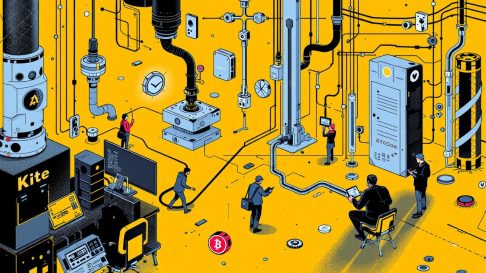Published: December 26, 2024 at 7:18 pm
Updated on June 09, 2025 at 7:06 pm




High-profile cryptocurrency donations are changing the game, not just for the recipients but also for the perception of digital currencies. When Vitalik Buterin recently donated to a Thai zoo, it wasn’t just a kind act; it sparked a wave of interest among younger investors. As cryptocurrencies become synonymous with positive change, they also challenge traditional views and attract a new generation of backers. Let’s take a closer look at how these high-profile donations shape market trends and ethical considerations in the crypto realm.
Donations in the crypto world have taken on a life of their own. They’re not just cash transfers; they’re a means of gaining traction and credibility. The transparency blockchain offers makes these donations especially attractive, ensuring that funds go exactly where they’re intended.
Vitalik Buterin isn’t just any crypto figure; as a top crypto trader, he wields considerable influence. His recent donation of 10,000,000 Thai baht (around $292,039) to the Khao Kheow Open Zoo in Thailand serves as a prime example. This particular zoo has a special connection, as it welcomed a female pygmy hippopotamus in July, a number of which were born in a private zoo in Thailand.
The zoo, located about 85 kilometers south of Bangkok, operates within the Khao Kheow-Khao Chomphu Wildlife Sanctuary. Buterin’s donation does more than provide urgent funding; it shines a spotlight on the zoo’s projects, generating awareness for their conservation efforts.
Buterin’s approach? “Thanks for the warm welcome to the family and your work for wild animals! I’m happy to be adoptive father to Moo Deng… May they live long and prosper.”
He’s not stopping there either. Setting aside 88 ETH (about $296,050), he aims to continue supporting Moo Deng and her zoo companions in the future.
So how does this all resonate with young investors? The influence is profound, especially among millennials and Gen Z who are more open to crypto investments and often value social responsibility.
When influential figures like Buterin give substantial amounts, it adds credibility to cryptocurrencies as an earnest and responsible asset class. It shows the world that digital currencies can be harnessed for meaningful purposes, helping to build trust within and outside the community. Services like The Giving Block that ensure 100% of net proceeds reach their intended causes are also contributing to this narrative.
Publicized donations can even help combat negative stereotypes associated with crypto, like their links to illicit activities. Tying crypto to philanthropy enhances its image, making it more appealing to socially conscious younger investors.
Younger generations are already leaning toward crypto investments. High-profile donations can affirm their belief that cryptocurrencies represent the financial future and a valid investment. The knowledge that key players in the crypto scene are using their wealth for good can solidify this perspective.
These thoughts particularly resonate with younger investors, who are likely to own and understand digital currencies. Millennials and Gen Z are set to inherit massive wealth and are already engaged in crypto. Such donations may validate their investment choices and encourage them to invest and donate in cryptocurrencies.
The role of AI, including crypto AI robots, in these donations introduces a number of ethical concerns. While AI can make fundraising more effective, it is crucial to navigate the ethical landscape carefully.
AI isn’t yet capable of making ethical decisions. Human oversight is essential to ensure that AI operates in compliance with ethical standards and best practices. Transparency about AI’s role and addressing data ethics and bias are vital for maintaining donor trust.
AI’s involvement raises questions about data ethics. Relying on flawed data can exacerbate discrimination through automated decisions. Nonprofits need to critically evaluate existing datasets and AI systems for biases to maintain inclusivity.
To ethically use AI, nonprofits must be open about whether donors are interacting with a bot or a human. Donors should be comfortable with how much information is being collected, and organizations should think about what is acceptable.
AI can gather extensive data, and using tools like facial recognition raises ethical dilemmas. Nonprofits must determine what data collection is permissible and protect donor privacy and security.
The adoption of AI can deskill fundraisers, so it’s crucial to maintain public trust by evaluating workforce impacts and aligning governance with supporters’ expectations.
To ensure ethical AI use, nonprofits should adhere to best practices like maintaining data privacy and security, ensuring fairness, and obtaining donor consent. Salesforce’s commitment to ethical AI development can serve as a good example.
High-profile crypto donations, such as those made by Vitalik Buterin, have a significant impact on how young investors perceive cryptocurrencies. As these donations continue, they reshape the landscape, enhancing the legitimacy and trustworthiness of digital currencies while also posing ethical questions that must be addressed.
Access the full functionality of CryptoRobotics by downloading the trading app. This app allows you to manage and adjust your best directly from your smartphone or tablet.


News
See moreBlog
See more






